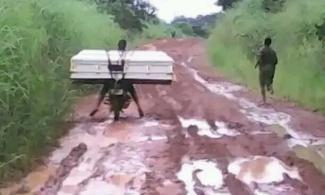
Obeagu, a boundary community shared by Ebonyi and Enugu states with over 10,000 population has no access road or health facility, either public or private. It has no potable water, functional primary and secondary school or electricity.
For the residents of Obeagu Community in the Ishielu local government area of Ebonyi state, life is brutish, hard and unforgiving. Their daily existence typifies a state of nature where life is bestial and short with the daily struggle for survival as a permanent feature.
Obeagu, a boundary community shared by Ebonyi and Enugu states with over 10,000 population has no access road or health facility, either public or private. It has no potable water, functional primary and secondary school or electricity.
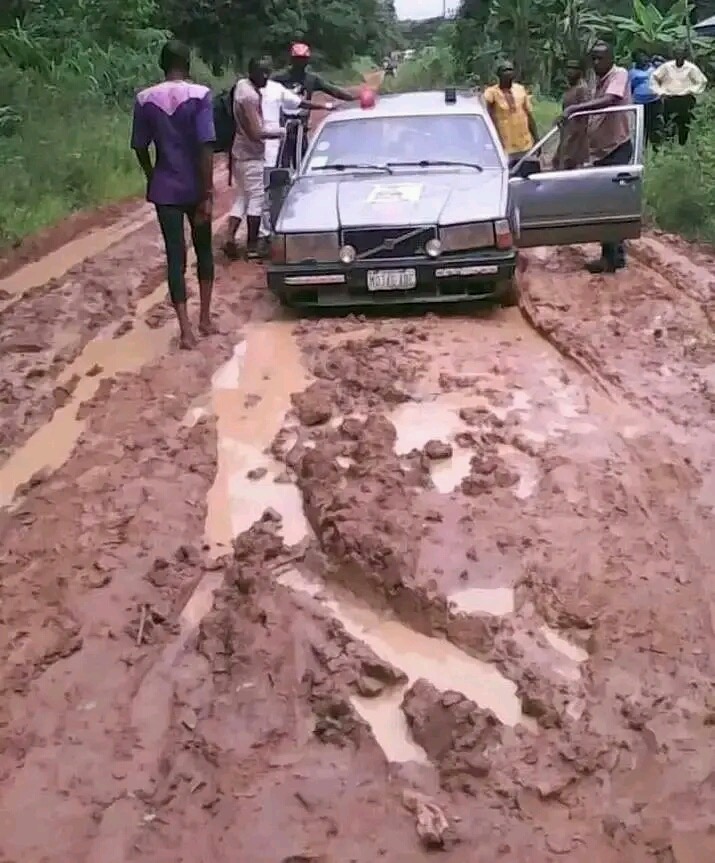
Located along Enugu – Nkalagu – Egedegede – Eha-Amufu – Ikem – Obollo-Afor Road, the community can only be accessed through Egedegede immediately after Nigercem junction in Amazui en route from Enugu to Nkalagu. Going from Nsukka or Benue State through Eha-Amufu, Obeagu community is located immediately after Ochin River, forming a boundary between Enugu and Ebonyi states.
The community has boundaries with seven communities, two in Ebonyi and five in Enugu. The communities are – Eha-Amufu, Umueru, Agbuogbazi Nike, Amankanu and Ubahu all in Enugu; while Amazui and Nkalahi are the two communities that share boundaries with Ebonyi.
To access the community which has only one access road through Egedegede, a first-time visitor would need to charter a motorcycle at either Nkalagu or Eha-Amufu to go to the community. It takes 45 minutes to one hour from either Nkalagu or Eha-Amufu to get to the community. From Eha-Amufu and Nkalagu to Egedegede, Obeagu Junction is motorable but from Egedegede to Obeagu main town is where the problem lies. The road is about 15 kilometres with a stretch of about 9 to 10 kilometres of farmlands along the road. Even after riding on a commercial motorcycle, otherwise called Okada, a visitor to the community will still have to trek for nearly six kilometres, especially during the rainy season.
Our correspondent who visited the agrarian community recently learnt that residents convey the corpses of their loved ones to the morgue in Eha-Amufu, Ikem or Nkalagu, about 20 to 30 kilometres away to deposit them during the rainy season and wait till dry season for the burial. In cases where families want to bury their corpses during the rainy season, after conveying such corpses to Egedegede, the family will have to procure the services of willing young men to carry the corpse on their head for several kilometres before getting to an area where a motorcycle can take over and carry it to the family of the deceased.
Sadly, the community is cut off from the rest of the state, due to a lack of access roads. Visiting the community is a nightmare as it is only accessible through a track road by foot or motorcycle.
Hell For Expectant Mothers
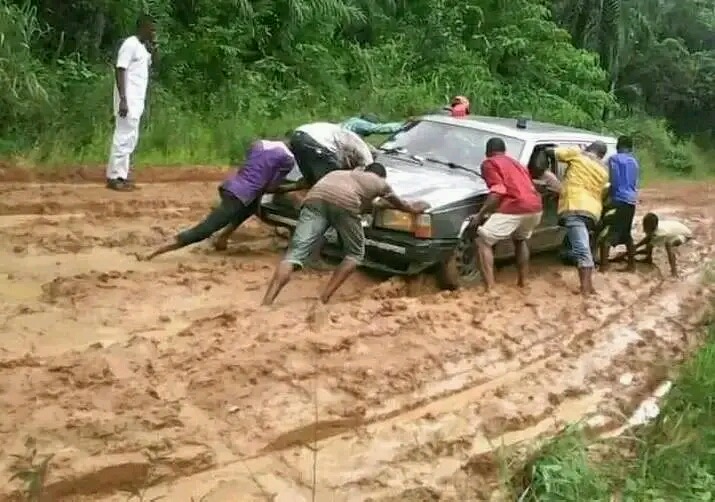
In the community, expectant mothers go through hell due to a lack of access to medical care. Children trek for hours in the scorching sun to get to school. The hardship being faced by the people is akin to hell on earth due to the absence of basic infrastructure and social amenities. The people live like refugees in their fatherland with no iota of concern from the government.
During a recent visit to the community by our correspondent, many families were seen trekking from Egedegede junction to Obeagu community as it is difficult to get a motorcycle outside Eha-Amufu and Nkalagu. The only secondary school in the community which was built through community efforts was burnt while two blocks of two classrooms each were destroyed by a rainstorm. It was learnt that the incident happened over a year ago without any government attention afterwards.
The only public health centre situated along the road has only two staff members, a midwife and an attendant, with no electricity or water. It has basic drugs and pregnant women hardly patronise the facility. Instead, they patronise local birth attendants.
Lamenting the development, the Councillor representing Obeagu Ward in the Ishielu local government area, Eze Casmir, said: “What is happening in our place is a very bad omen,” adding that the community also faces incessant attacks by herdsmen taking the advantage of the deplorable state of the road.
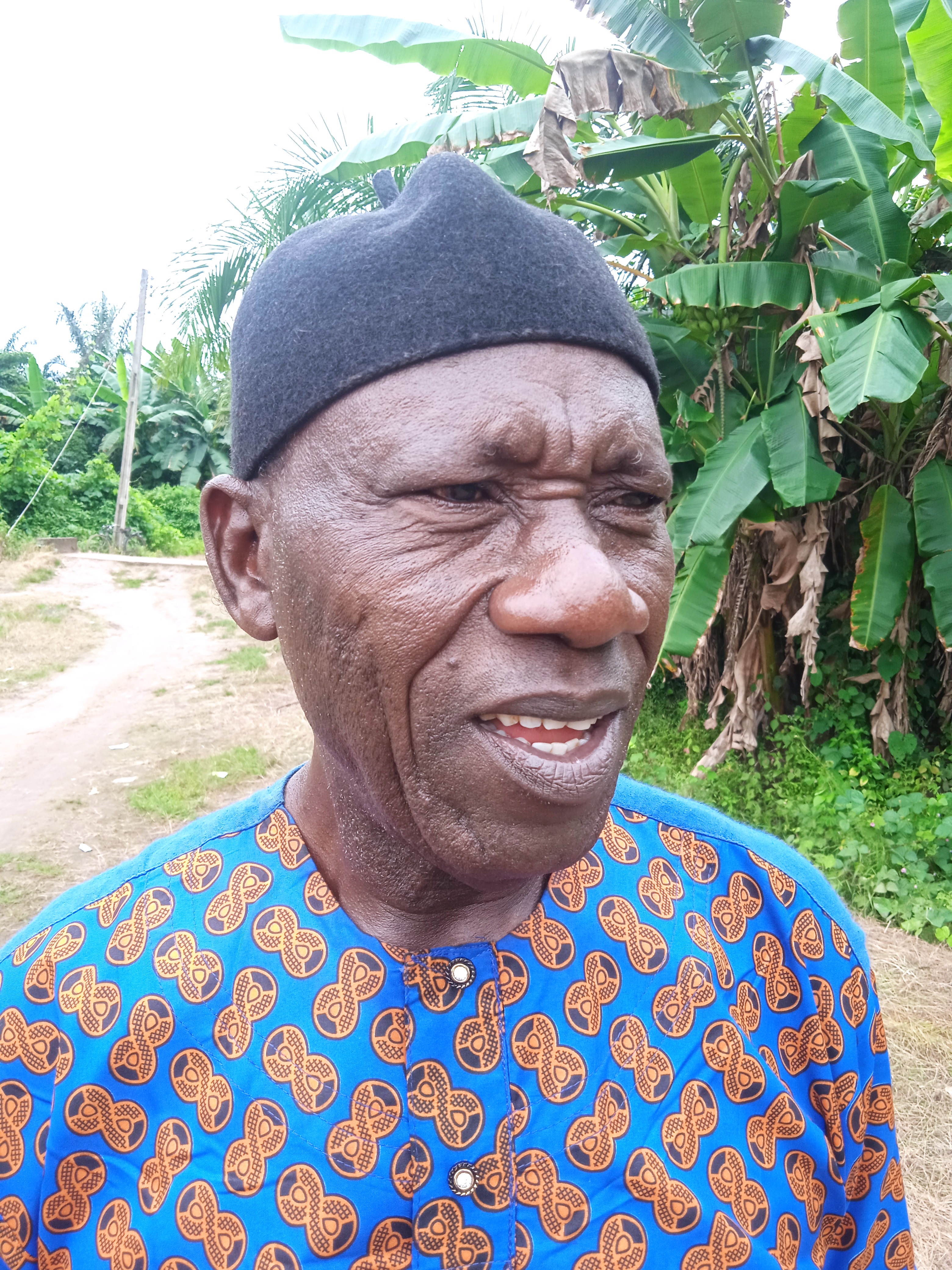
He said because of the lack of access road, suspected herdsmen attacked the community and killed 18 young men on March 29, 2021. “This year, they came back on October 13, and killed one young man, kidnapped three and injured two but by the grace of God after they collected a very big ransom, they released the three.”
So our problems are numerous, he said adding, “if it is only carrying a corpse on the head and walking several kilometres or conveying a corpse to a morgue on a commercial motorcycle, we will be hoping that one day the government will remember the plight of the community.”
Residents Lament Carrying Corpses On Their Heads, Motorbikes
On why residents of the community have to carry corpses on motorbikes, Ezeh said, “The reason is that the road is not passable and most of the people that died, the family usually take the body to the morgue and wait till dry season when people can access the community through vehicle otherwise if you try it during the rainy season, your vehicle will spoil on the road, or even get stuck in the mud.
“So because of mud nearly all through, they can't bring their dead ones to bury until when the road is dry; maybe from the middle of November, December and January, they start bringing their dead ones to bury. Within this period, you see a lot of burial here. So that's what we do.
"Our youths are trying - sometimes they go and dig gutters in all the places that are terribly bad to create waterways. So these are what the youths have been doing. Sometimes they clear the road and make it passable. They will create a channel where the water will pass and that is what we have been doing to alleviate problems.
“Our people have pleaded with the government at both local and state levels. Even when the vice president (Yemi Osinbajo) came after the first Fulani herdsmen attack, the governor of the Ebonyi state told Osinbajo that the road needed to be constructed and that the road is bad.
“That road is about 10km and from Egedegede junction to the railway crossing in the heart of the community is not much but it is not what the community can do on its own. Creating a gutter is not done by hand, it is not just what the community will handle only by themselves. So, we beg the government to help us do something about the road.
“You can imagine carrying a corpse on the head or conveying a corpse with a motorcycle to the morgue for several kilometres owing to the fact that there is a road. This is the reality we have faced.
“It is by motorcycle and even sometimes they use the same motorcycle to go and bring back corpses for burial. Sometimes, people use their heads to carry corpses but it is not everybody, though, there are some people who prefer their own to be carried by motorcycles. Those ones come during the dry season to do their burial.”
The President General of the Obeagu community, Kenneth Okoh, also described the development as painful and difficult.
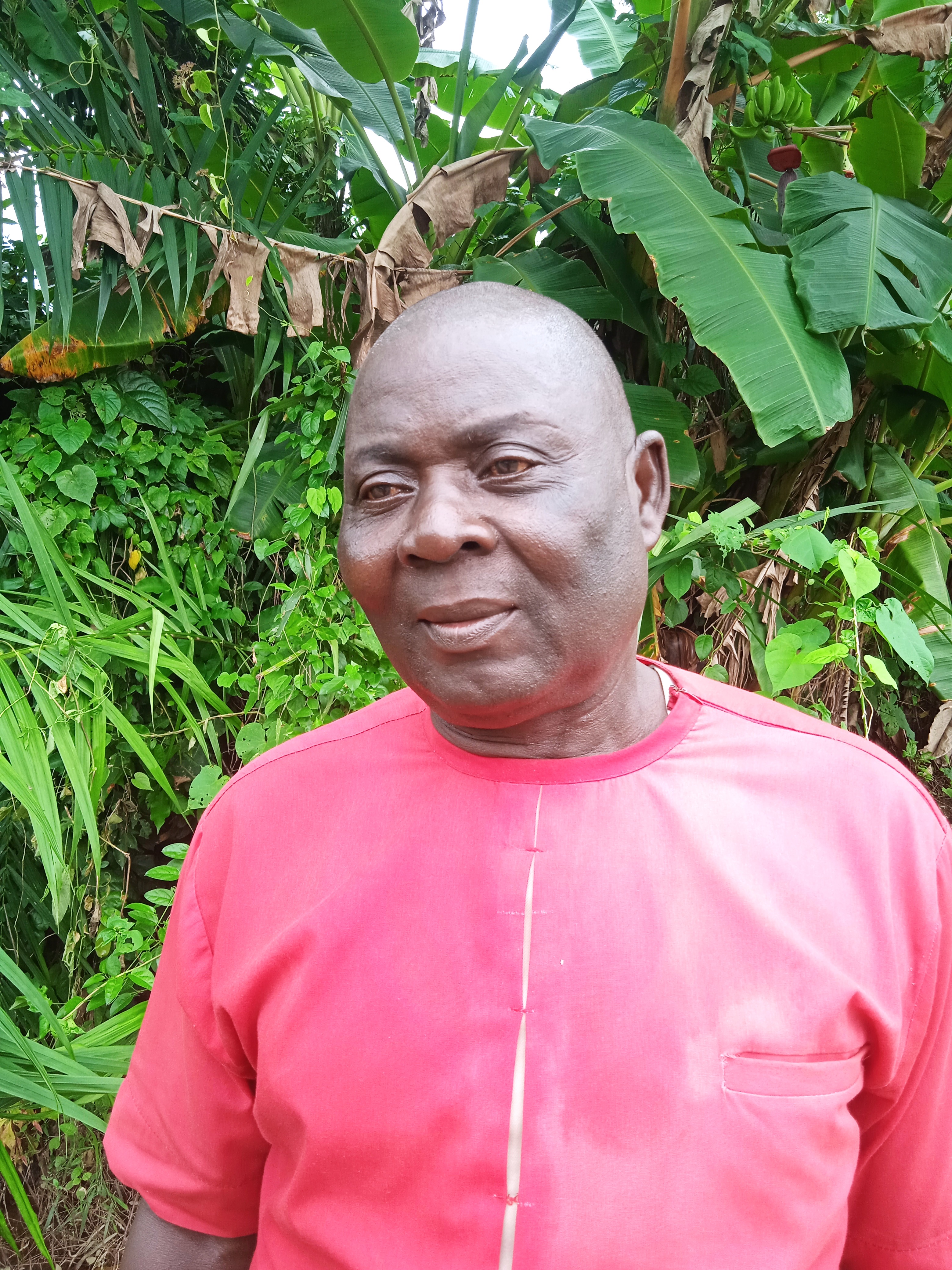
“In fact, we have been suffering a lot right from inception because if you come to our road, it is the worst road in the Ishielu local government area of Ebonyi State. And because of the bad road, our people were slaughtered like goats on the road.
“If you come to our road now, during the rainy season you will find it difficult to access the community. Because of bad roads a lot of people don't bury their dead ones during the rainy season.”
Fixing the road, Okoh said, is not what the community can do on its own.
He said, "It is not what the community can do; the road is about 10km and every year we clear the road but when the rainy season comes, water will destroy it. We are begging the government to come to our aid because most of our boys are being wasted, killed, and slaughtered like goats.”
Okafor Nwa-Ogenye, a motorcycle rider who also specialises in carrying corpses to the morgue, told SaharaReporters that the business is not a tea party.
“Not every bike man can carry a corpse. Our road is bad, it is giving us headaches and concerns. Whenever it rains, people complain so much about high fares and it is because of bad roads. For trips on the road that they are supposed to be charging N300 or N400 for, they are charging N1,500 for them; at times N2,000 for two passengers.
“If someone died, before you convey the corpse to the mortuary located in our neighbouring community, Eha-Amufu, we collect N7,000 or N10,000 because of the road. We use motorcycles to carry corpses to the morgue. Cars don't come here when it rains, especially during the rainy season.
“For those who died in the city, if their people want to bury them, there is a spot where they will get to, where the road is motorable then we use a motorcycle to carry it to the community. Also at times, we carry dead bodies on our heads when there are no bikes that can carry them.
“If it rains, it takes 30 minutes to ride to where the road is good and motorable which is not supposed to be so if there is no rain. Ordinarily, it doesn't take 10 minutes if the road is motorable. Both the state and local governments, in the last 20 years haven't done anything for us. No government presence here.
“You can only see people using our people during elections. During the campaign, they will promise heaven and earth but when they get what they want they forget their promises.
"Apart from the bad road, kidnappers are taking advantage of the bad road to kill and abduct people along the road now,” he said.
Corroborating Okafor’s submission, Okechukwu Anyanwu, another commercial motorbike rider, described carrying a corpse on a motorcycle as the most difficult part of their job. “No matter how bad the road may present, you cannot fall with the corpse or bring it down until you get to the morgue.”
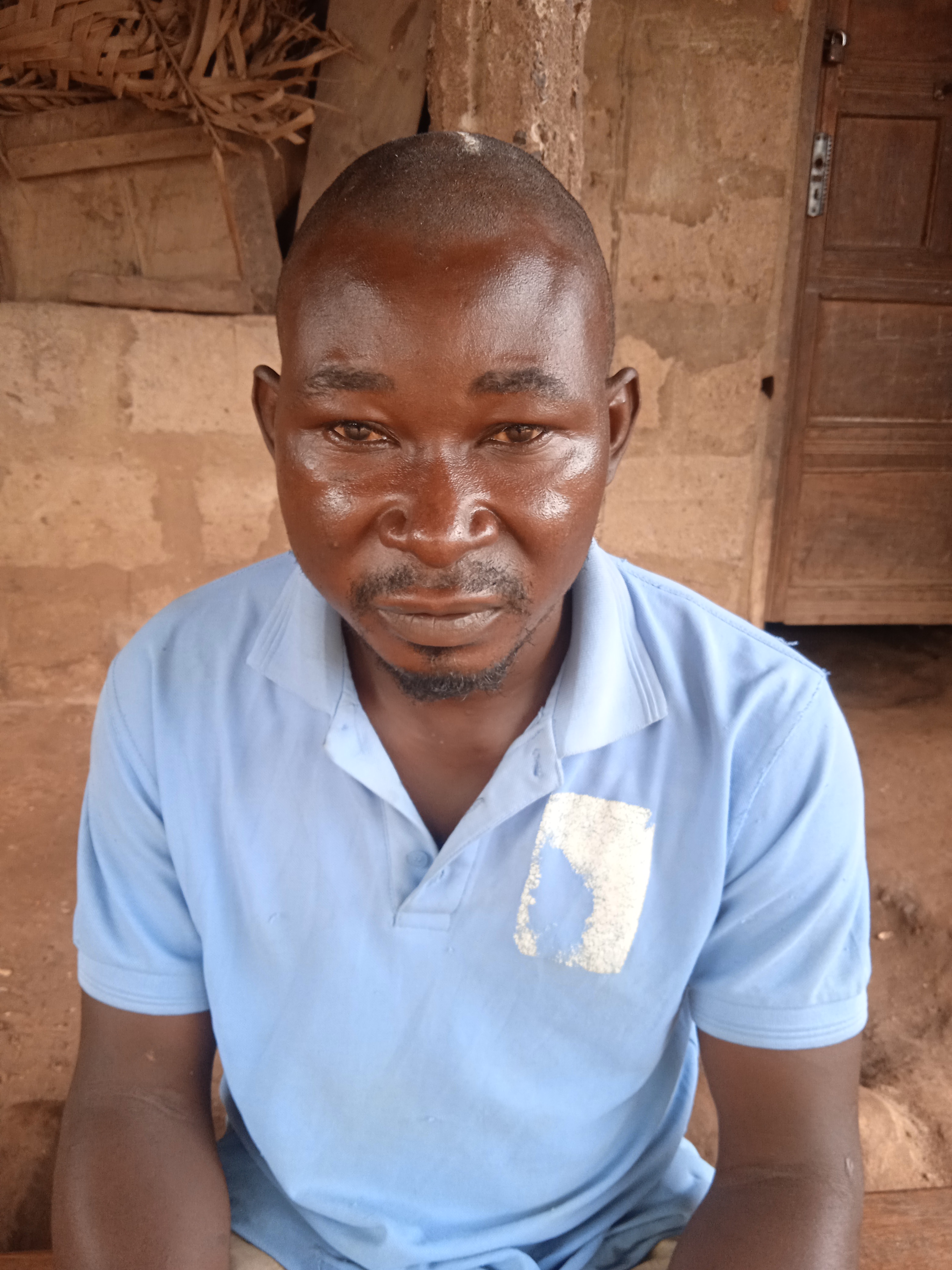
He continued, “On days when the road is so bad that even with motorcycles it is difficult to carry the corpse from the community, we boys carry it on the head to Egedegede junction. From there, a motorcycle will take it to the mortuary at Eha-Amufu. For the days the road is manageable, we carry it on the motorcycle from the community to Eha-Amufu.
“Often we tie the corpse to the motorcycle or make it sit down on the motorcycle and another person will sit behind to ensure it doesn’t fall off the motorcycle.
“Carrying the corpse to Eha-Amufu from here, we collect N6,000 or N7,000. When the conditions are terrible, we collect N10,000 from the affected family.”
Narrating the difficulty they face in carrying corpses to the mortuary, Okechukwu said “because the road is terribly bad, you can imagine getting to a section of the road where ordinarily your passengers will have to get down and cross on foot; but in this case, the corpse will have to stay”.
“You will struggle and ensure that it doesn't fall down till you get to the mortuary. You cannot afford to fall down with a corpse and that is why not every commercial motorcycle rider can carry a corpse to a mortuary.
“Here in the community, we are just three who can carry corpses on our motorcycles,” he added.
Giving insight into the plight of the community people, Elder Olinya Abaru, an octogenarian said the people are suffering because of a lack of basic social amenities.
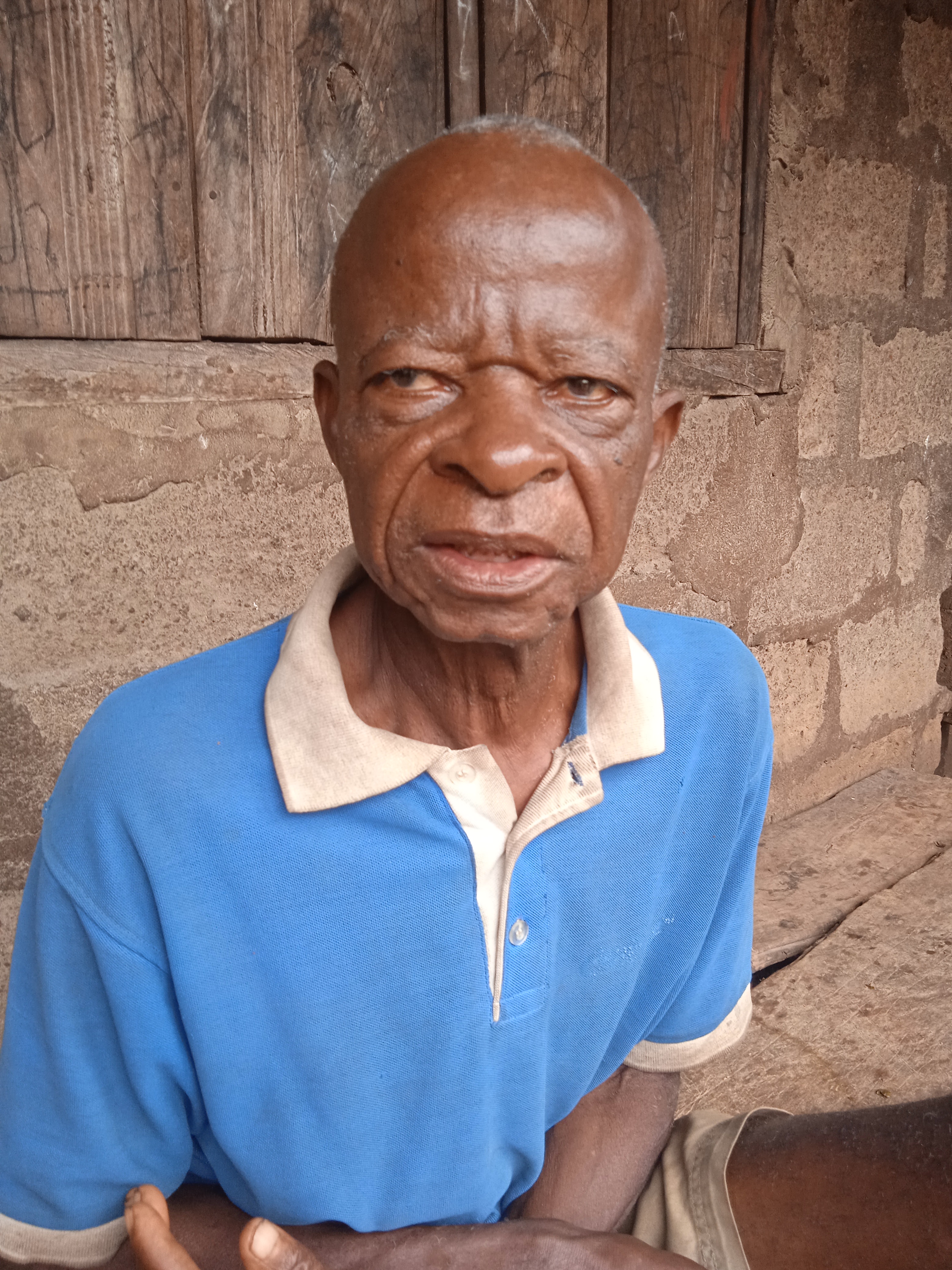
He described a community with a population of over 8,000 people living without a functional hospital as a tragedy.
“There is no hospital in the community – private individuals who attempted to open hospitals in the community didn’t last because there are no supporting facilities like electricity, good water and worse, there is no access road to the community.
“If you are a doctor operating a hospital here, will you be trekking for over seven kilometres to go outside to buy drugs, especially in the rainy season when it is most difficult to ride a motorcycle?
“When I was a little boy, I worked on the road; that was about 65 years ago. I didn’t expect that I would leave this world without that road being constructed. Vehicles didn't ply the road then and my community tried very hard to even get the road to be in the state it is now.
“We laid the foundation of the road. We shared the work on the road village by village. I felt that by now, the government would have constructed the road. It is only when elections are close that politicians come and promise heaven and earth, thereafter you won’t see them again until the next four years when it is time for another election.
“That is the only time they remember that people live in Obeagu. The government of Ebonyi has rejected us and that is what it is but we didn’t offend the government.”
Speaking on the difficulty in bringing people to bury in the community during the rainy season, the octogenarian said the deplorable state of the road is responsible for the problem. “When they convey the corpse to Egedegede junction, people will carry it on their heads to the community. We don’t reject the corpse of our relations. So that is why we suffer to bring the corpses of our people home to bury. It is our tradition,” he said with a note of frustration.
He lamented that herdsmen attack the community and manage to escape because of the road.
The state government however declined to comment on the deplorable situation in the community.
Efforts to speak with the state information commissioner, Mr Uchenna Orji were unsuccessful as he consistently rejected calls from SaharaReporters. He also did not reply to a text message sent to his mobile phone.
Also, the chairman of Ishielu local government area, Hon Obinna Onwe, declined to comment on the situation when contacted on the phone.